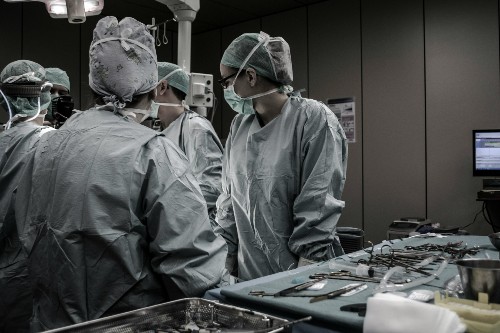Although infection after hip replacement surgery is relatively rare (around 1 in 100), the impact on patients’ lives can be devastating. A new website and toolkit has been developed to help healthcare professionals understand and implement best-practice guidelines on treating and supporting patients with prosthetic hip joint infection.
The guidelines are the result of the INFORM: EP (INFection and ORthopaedic Managment: Evidence into Practice) study, based on the evidence from a successful six-year research programme called INFORM led by the University of Bristol and funded by the National Institute for Health and Care Research (NIHR). The guidelines aim to ensure that patients with infection after hip replacement surgery receive prompt and effective care and have the best chance of a good outcome.
The new online resource is for surgeons, doctors, physiotherapists, nurses, and other healthcare professionals who support patients who have had joint replacement surgery. The website includes a series of short films explaining each section of the guidelines, and a toolkit with downloadable resources for different healthcare professionals.
Dr Andrew Moore, lead researcher for the INFORM: EP study said: “The aim of the website and resources is to provide more information to help healthcare professionals to use the INFORM guidelines and resources to enable better outcomes for patients with prosthetic infection.”
Sue, a hip replacement patient and member of the INFORM EP patient and public involvement group shares her experience. She said: “I knew something was wrong because it was very painful and I couldn’t move my leg; it was bright red and extremely hot. And I was ill, I had a high temperature, felt sick and I started hallucinating. The GP came out and said ‘you need hospital and you need to go now.’ They do the blood tests to look at your infection level and mine was sky high.
“You’ve had this operation thinking that life is going to be so much better now because you’re not in pain, you’re able to walk. And then all of a sudden, it’s like, right, this is now happened, is all that gone?”
Professor Ashley Blom, Orthopaedic Surgeon who led the INFORM study team, said: “The INFORM EP study focussed on turning evidence into practice, working in partnership with healthcare professionals and medical centres around the country. The guidelines were developed with input from patients with lived experience of the negative impacts of hip joint infection. Understanding and adhering to these evidence-based, best-practice guidelines can help to improve treatment pathways, and outcomes for patients.”
Key take aways from the research:
Remaining vigilant to the possibility of prosthetic joint infection is important for patients who have had joint replacement surgery, especially those at high risk.
Prosthetic joint infection needs to be identified quickly and treated by a specialist orthopedic team.
Do not treat suspected prosthetic joint infection in the community with broad spectrum antibiotics: to improve their chances of a better outcome refer them urgently to the orthopaedic team for assessment.
Visit the INFORM website
Download a pdf of the INFORM EP guidelines
Watch a series of short films explaining the guidelines
Further information
INFORM study
The research team would like to thank all the members of the INFORM: EP patient advisory group who worked with them and shared their experiences in the hope it will help others in the future.
This study is funded by the National Institute for Health & Care Research (NIHR) as a Programme Development Grant (NIHR202943). The views expressed are those of the authors and not necessarily those of the NIHR or the Department of Health and Social Care.
About the National Institute for Health and Care Research (NIHR)
The mission of the National Institute for Health and Care Research (NIHR) is to improve the health and wealth of the nation through research. We do this by:
Funding high quality, timely research that benefits the NHS, public health and social care;
Investing in world-class expertise, facilities and a skilled delivery workforce to translate discoveries into improved treatments and services;
Partnering with patients, service users, carers and communities, improving the relevance, quality and impact of our research;
Attracting, training and supporting the best researchers to tackle complex health and social care challenges;
Collaborating with other public funders, charities and industry to help shape a cohesive and globally competitive research system;
Funding applied global health research and training to meet the needs of the poorest people in low and middle income countries.
NIHR is funded by the Department of Health and Social Care. Its work in low and middle income countries is principally funded through UK Aid from the UK government.

